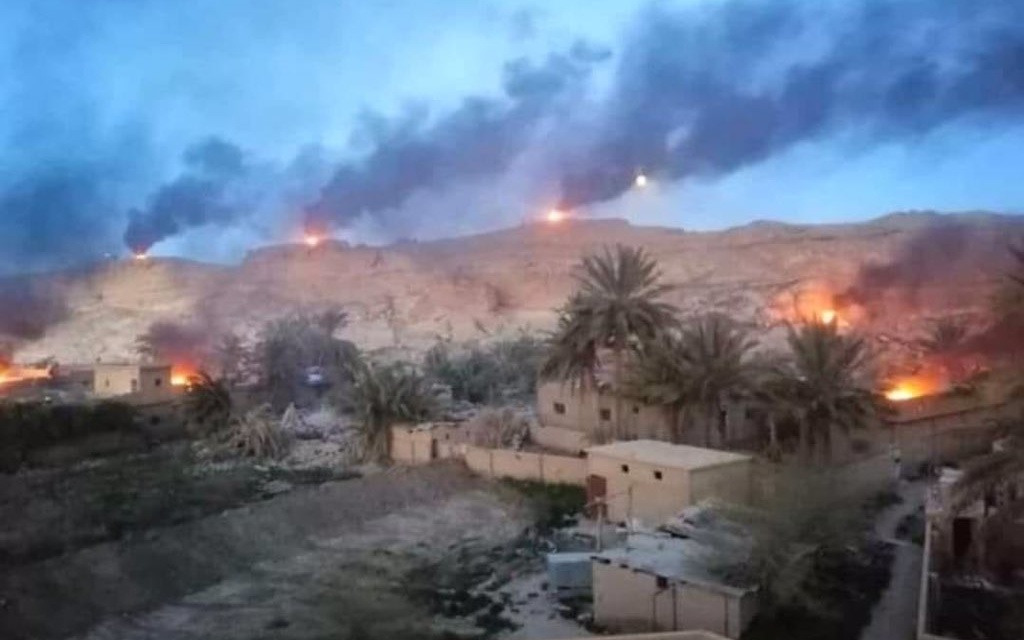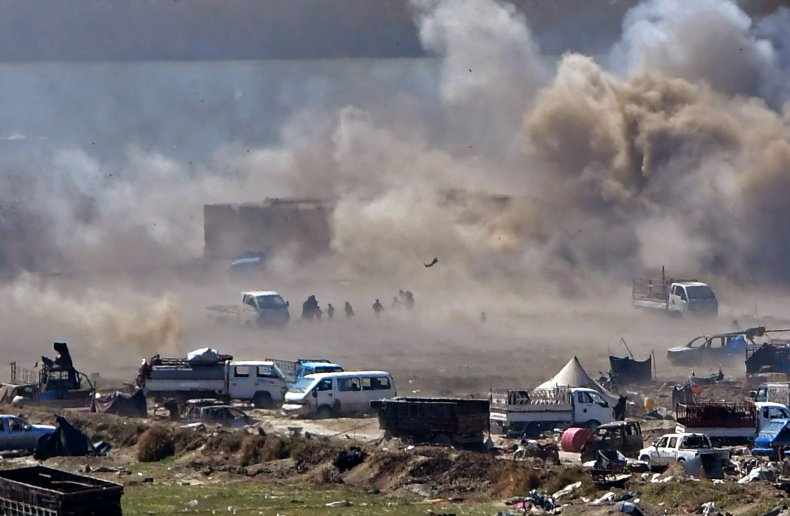
Pentagon Review Holds No-one Accountable
For 2019 Strike that Killed Four Cvilians
Oren Liebermann / CNN
(May 17, 2022) — Despite a renewed commitment on civilian casualties, the Pentagon has decided to hold no one accountable for a 2019 strike in Baghouz, Syria, that killed four civilians and wounded 15.
Following the conclusion of a four-star review of the incident during the last days of the US fight against the final ISIS stronghold in March 2019, the Pentagon said that the airstrike did not violate the laws of warfare or the rules of engagement.
Neither the ground forces commander nor anyone involved in carrying out the airstrike “acted inappropriately or acted with malicious intent” or “deliberately wanted to and sought out to kill civilians,” Pentagon press secretary John Kirby said Tuesday.
Kirby emphasized what he called transparency in the US investigation and review of the strike, and he said the Pentagon would use that information to try to prevent civilian harm in the future. “We’re admitting that, yes, we killed some innocent civilians, women and children, in 2019 in Baghouz, Syria. It’s all out there for you to see. We’re admitting that we made those mistakes. That our operations ended up in the killing of innocent people.”
The review found there were problems that led to numerous delays in reporting the possibility of civilian casualties within the military, including missed deadlines and incomplete information that prevented complete assessments. Defense Secretary Lloyd Austin was “disappointed” to learn about these problems, Kirby said.
Austin has placed a renewed emphasis on preventing civilian casualties, calling for the development of a Civilian Harm Mitigation and Response Action Plan in late-January. But despite the increased focus, the Pentagon has not punished any of its commanders for civilian casualties. In December, the Pentagon said it would not hold anyone accountable for a drone strike in late-August that killed 10 civilians, including seven children. A review of the strike concluded it was a “tragic mistake” that was the result of “execution errors.”

Austin ordered a review of the Baghouz strike in late-November, putting General Michael Garrett, the four-star commander of US Army Force Command, in charge.
On March 18, 2019, the US-allied Syrian Democratic Forces called for air support when they came under attack from ISIS forces, according to a statement from Capt. Bill Urban, spokesman for US Central Command. US and coalition forces surrounded the last ISIS holdout in Baghouz, Syria, but in the final days of fighting, ISIS launched its own counterattack.
A nearby F-15 fighter jet dropped three 500-pound precision-guided bombs to assist the SDF. Several hours after the strikes, Urban said the UAV operator reported possible civilians in the area when the bombs were dropped.
A military investigation initiated in the aftermath of the Syria strikes found they were “legitimate self-defense strikes” in support of the SDF that killed “at least” 16 ISIS fighters, Urban said. The strikes also killed “at least” four civilians and wounded eight others, but the military could not “conclusively characterize the status” of more than 60 others killed in the strikes, leaving open the possibility of a much higher civilian death toll.
On Tuesday, Kirby said that a review of the strike found that a total of 73 people had been killed, of which 52 were enemy fighters. All but one of those was an adult male, and one fighter was a child. Two enemy combatants were wounded in action. Four civilians were killed in the strike, including one woman and three children. Another 15 civilian were wounded, including 11 women and four children.

Syrian asks for reparations and demands US withdrawal.
“There was no need to hold somebody personally accountable for what happened that day,” Kirby said. “Given the information [the ground forces commander] had at the time, he made the best decisions he could in the fog of war, in the midst of combat, against a very determined enemy in a concentrated part of territory in Syria who were fighting very, very aggressively against our SDF counterparts.”
“You make the best decisions you can in war. Do you get it right every time? No. And that’s regrettable for all of us.”
Austin directed the military to take a number of steps to ensure more timely and thorough assessments of potential civilian casualty incidents. He ordered that all the deadlines to report and review these incidents would be completed in an on time and thorough fashion, instructing leaders across DoD to make sure they are complete.
Posted in accordance with Title 17, Section 107, US Code, for noncommercial, educational purposes.